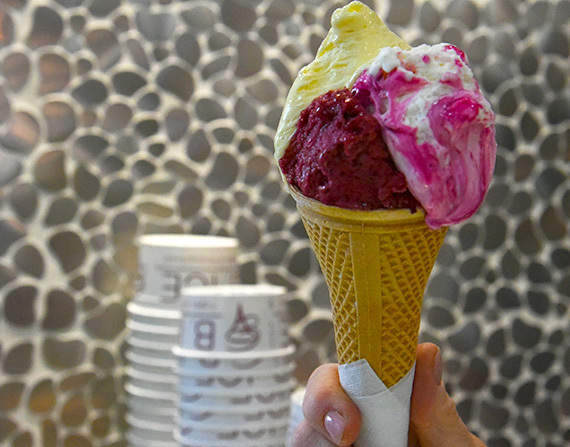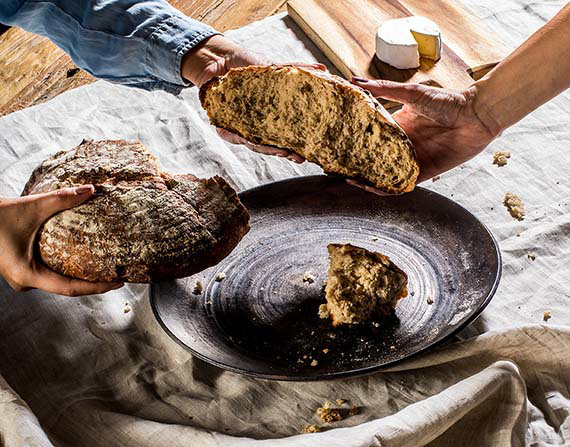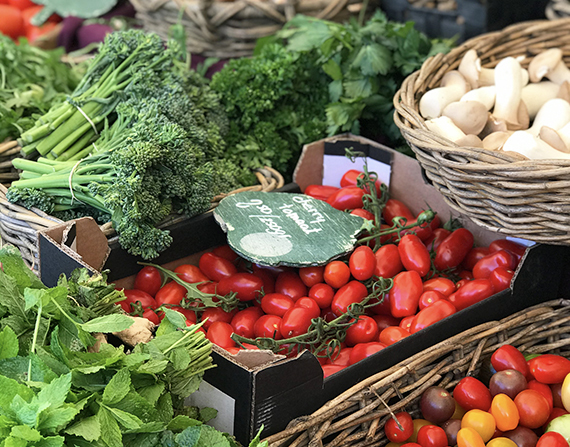The tasty and comforting cuisine of Palestine
Anyone visiting the Middle East can immediately sense how their people care - a lot - about making sure tourists will eat very well. Serving good food and good beverage are part of the Palestinian behaviour and way of life. Abundance of bread, meat, tabule, eggplant, stew, spicy dishes and so. These are pretty much the essence of Jordan cuisine.
Mjadra (or Mujaddara): I will never forget this delicious dish, as popular as “our rice and beans”, but made of cumin-flavored rice and lentils and sprinkled with pinoli and caramelized onions. Very easy to find in any restaurant;
Moutabel: It's like the Arab baba ghanoush, but lighter because yogurt is added. It is also very common to find it in restaurants;
Kunafah (or Kanafeh): Palestinian sweet made from cheese, sugar syrup and a type of very thin noodles, sprinkled with pistachios. In Amman, the most well-known place is Habibah, where every day there are queues of locals who go there to taste it. And thanks to the owner's keen eyes, which can be seen in the background of one of the photos, an uninterrupted and excellent production is guaranteed every day;
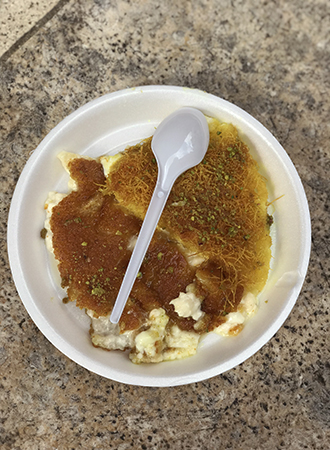
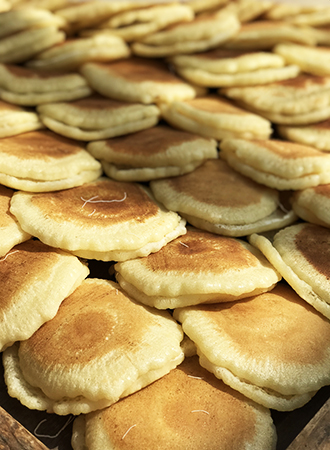
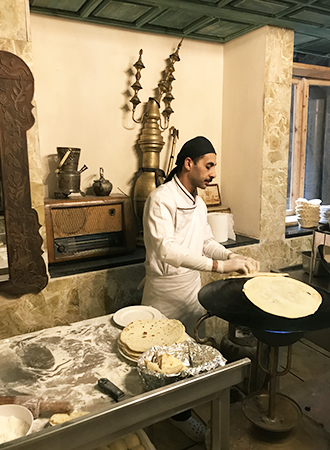
Arabic Sirack Bread: It is one of the most traditional bread within the Arab culture and possibly widespread worldwide. There are the "chubby", the "thinner", the larger or smaller ones. Savouring them in Arab countries is really an invitation to taste, since generally those in western countries are almost always industrialized (there are exceptions, of course). It is very common to see the process of making this bread in both Jordan and Israel, either at fairs or places like this, on the mezzanine of a shop where diverse people gather during the day to drink the famous Turkish coffee or tea, to eat or chat.
Falafel: the best falafel in the world can be found in Jordan - and this is not just said by me - in the shape of a ball, fluffy inside, very crispy on the outside and slightly pepperier. You can find it everywhere, but where I liked it the most was at the Hashem, a famous restaurant that also serves breakfast and much appreciated by locals and tourists. The house has been run for over 50 years by a family of Turkish origin, and the business is such a success that even King Abdullah II chose it to have a modest Royal breakfast with his family;
Turkish coffee: Very typical in Jordan, and not just in Turkey, it is actually a much more consistent drink than "regular coffees," of a much denser texture, much stronger and spiced with cardamom. Turkish coffee is literally drunk in any corner.



